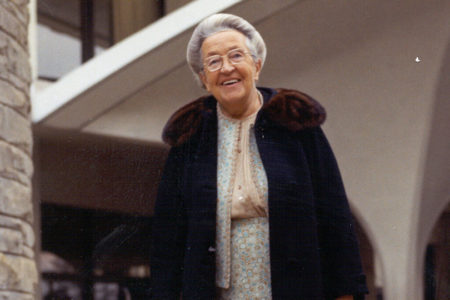Chai, Chai, V’Kayam Part One
Look! Up in the sky! It’s a bird. It’s a plane. It’s a superhero who was killed and came back to life then was killed again and came back to life then killed someone else who came back to life. There’s hardly a cartoon character left who hasn’t returned from the grave. Such is the fantasy world of comic books. It is a universe where death is never fatal, merely slightly inconvenient.
In the real world, however, there is no antidote for mortality. When you die, you die; and nothing will bring your stone-cold, lifeless human body back from the beyond so you can live to fight another day in true superhero fashion, only to die again. Scripture says, “It is appointed for men to die once, but after this the judgment” (Heb. 9:27).
Perhaps death’s irrevocability is why some people are so fascinated by reincarnation and resurrection fiction. They want to change the unchangeable, control the uncontrollable.
But God has not relinquished to mortal man His power over life and death. He says in Deuteronomy, “I kill and I make alive; I wound and I heal; nor is there any who can deliver from My hand” (32:39).
Sometimes, however, God decides to exercise His prerogative to do the impossible. And the mark of genuine, saving faith is believing that He can do it.
Such was the faith of the Shunammite woman in 2 Kings 4:8–37. She lived in the northern, apostate kingdom of Israel during the days of Elisha the prophet, yet she believed in the true and living God and in His power to raise her son from the dead.
Scripture does not provide her name but says she was a “notable” woman (probably wealthy) who lived with her elderly husband in Shunem, which was located in the Jezreel Valley in the Lower Galilee, not far from what today is the modern Israeli city of Afula.
Despite the fact that she had no children, particularly, no son—a great tragedy in Israelite society—the Shunammite woman was content. She apparently had a comfortable home and used it wisely and generously, offering hospitality to Elisha by persuading him to eat there whenever he was in town.
She also evidenced keen spiritual insight in perceiving her guest was a “holy man of God” (v. 9). Wanting to do more for him than feed him, she asked her husband to build and outfit a room for him on the roof of their house, where Elisha would be comfortable and assured of privacy. Wrote Bible scholar Alfred Edersheim:
An outside stair led up from the road to the roof of the house, so that it was not necessary to pass through the interior of a dwelling….This [act of the Shunammite] was indeed thoughtful, unselfish, and withal, respectful kindness and hospitality….Evidently the object was to provide for a prolonged stay on the part of the prophet, and for his complete privacy, and, as appears from the context (5:13), it included not only the prophet, but also his servant.1
Wanting to thank her, Elisha asked his servant, Gehazi, to summon the woman and ask her what she would like. Interestingly, Elisha did not speak to her directly but, rather, through Gehazi:
Then he said to Gehazi his servant, “Call this Shunammite woman.” When he had called her, she stood before him. And he [Elisha] said to him [Gehazi], “Say now to her, ‘Look, you have been concerned for us with all this care. What can I do for you? Do you want me to speak on your behalf to the king or to the commander of the army?’” She answered, “I dwell among my own people” (vv. 12–13).
These two verses tell much about this woman’s character. The fact that Elisha used an intermediary implies that their relationship never became familiar. And though she was “notable,” she respected the prophet and possessed a humility that distanced her from him.
“The frequency of his visits,” wrote Edersheim, “so far from inducing familiarity, only led to increased reverence on the part of the Shunammite.”2 Elisha probably realized as much and felt she would be more at ease revealing her desire to his servant than to him.
But she desired nothing. She had provided for him from sincerity of heart, wishing to help him and expecting nothing in return. She exemplified the apostle Paul’s admonition to Timothy: “Godliness with contentment is great gain” (1 Tim. 6:6).
“What then is to be done for her?” Elisha asked (v. 14). Gehazi, apparently more attuned to the grind of everyday life than Elisha, realized the Shunammite had no son. So Elisha called her back to his room and promised her, “About this time next year you shall embrace a son”—not merely a child, but a male heir (v. 16).
This would be an enormous miracle from God’s hand, so much so that the woman, who had known only futility in childbearing, told Elisha, “No, my lord. Man of God, do not lie to your maidservant!” (2 Ki. 4:16). Only God could give her this new life. And she understood the magnitude of the blessing. Now she would have a baby to love, wrap her arms around, protect, and provide for. Now she would have a son who would care for her in her old age and carry on her husband’s name. Nothing could have been more wonderful in Israelite society.
But now she also would have a need she never had before, because hers was not the world of comic books and fantasy.
Continued next issue
ENDNOTES
- Alfred Edersheim, Bible History, Old Testament, bk. 6, The History of Israel and Judah From the Reign of Ahab to the Decline of the Two Kingdoms (1890; reprint, 7 vols. in 1, Peabody, Mass.: Hendrickson Publishers, 1995), 766.
- Ibid.






